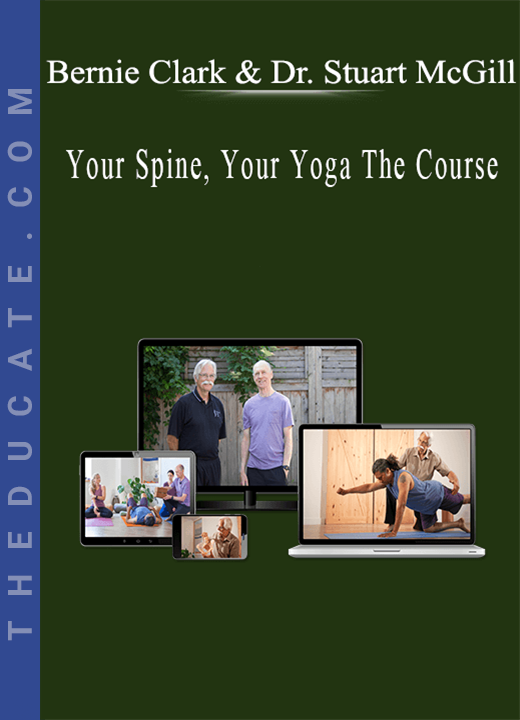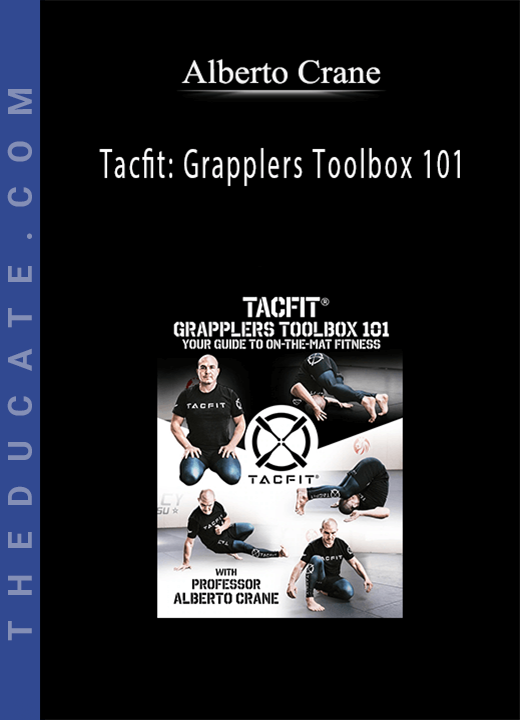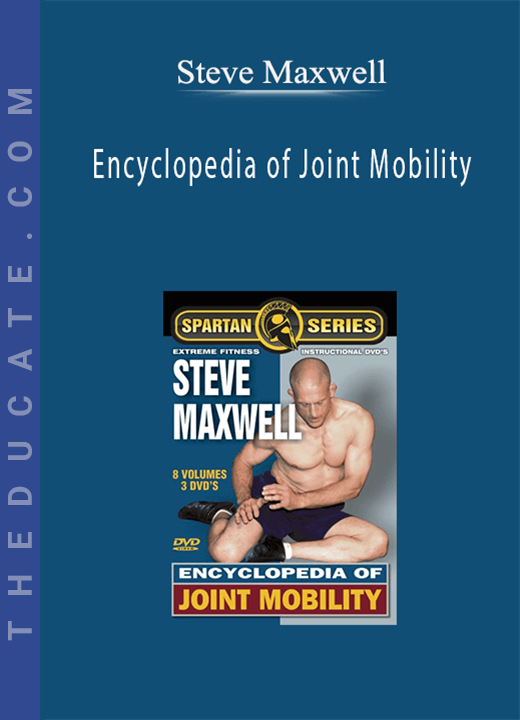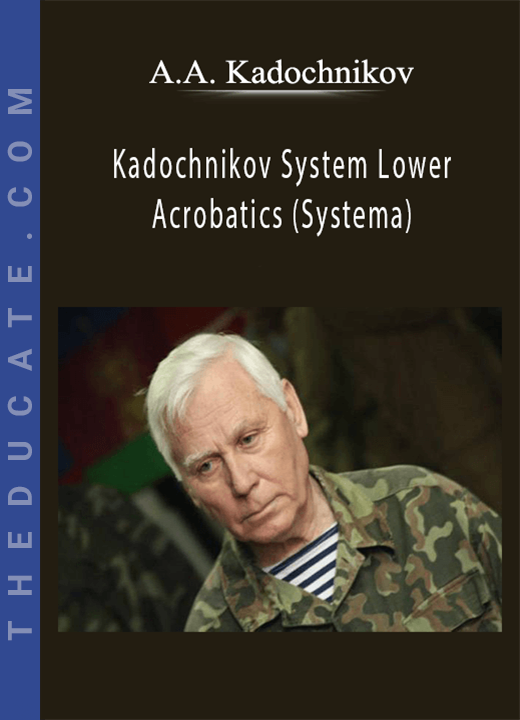Description
Bernie Clark and Dr. Stuart McGill – Your Spine, Your Yoga: The Course
LEARN HOW TO INCREASE SPINAL STABILITY, MOBILITY, ENDURANCE, AND WELL-BEING
Experts estimate that up to 80 percent of the population will experience back pain at some time in their lives.
It doesn’t need to be this way. Your Spine, Your Yoga: The Course with Bernie Clark and Dr. Stuart McGill reveals how yoga and other movement practices can be applied in a way that respects our anatomical differences and optimizes back health.
This eight-hour course will guide you in developing a practice unique to your life and your body. It’s for those who experience back pain, yoga teachers and therapists, and movement enthusiasts from all walks of life who want to learn more about the function and mechanics of their spine.
The spine is a multi-faceted, multi-functional construct uniquely designed to provide both stability and mobility through our torso to our limbs. While physical yoga practices have been used for decades to increase the range of motion of the spine, the spine’s primary function is, first and foremost, to provide stability through the core of our body. Building this stability is protective for the lower back and prepares the body to endure (and adapt to) multiple forms and levels of stress.
Equally important in developing and maintaining spinal health is understanding how your own uniqueness dictates the nature of your practice. No one has your biology or biography, thus a standardized practice offered to every body is rarely the most effective way to work with your spine.
IN THIS COURSE, YOU WILL DISCOVER:
The code—the science of the spine
Professor McGill and Bernie discuss back-related themes through the lenses of biology, biomechanics, and pain mechanisms, including:
Spinal architecture, functioning, and what actions can cause injury
Understanding the trade-off between spinal stability and mobility
How individual variations in anatomical structure affect ranges of motion and injury mechanisms
Neuromobilization and “nerve gliding” explained, with some simple techniques that you can try right away
Fascia and its effect on the body during movement
Understanding the muscles as proprioceptors, and their role in back pain
Why the rest period is the most important part of the movement cycle and how ignoring rest can lead to injury
The common sources (and the roles) of tension, compression, and shear
Developing a working understanding of optimal stress for optimal health
The importance of proper assessment when working with back pain
The art—making it real
Theory becomes practice! Professor McGill and Bernie demonstrate how to apply the knowledge of the spine to yoga, daily life, work, sports, and exercise. They explore:
How yoga teachers can adapt their teaching to incorporate cues that are appropriate for a variety of bodies, needs, and goals
How The McGill Big Three exercises build stability for the spine in a safe, progressive manner
Demonstrations and adaptations of yoga poses and The McGill Big Three for varying bodies and strength levels
Practices—taking it to the mat
Bernie Clark will apply the principles discussed in the code and the art in three guided yoga classes:
A one-hour yin yoga class focused on increasing spinal mobility
A one-hour active (yang) yoga class focused on building spinal strength and endurance
A one-hour yin/yang class to develop both mobility and stability for the spine
At the end of the practice segment are bonus tutorials with Professor McGill where he helps several students uniquely adapt their yoga practice for their bodies.
“I’m often asked about my opinion on yoga and the answer is always ‘It depends.’ It depends on the individual, how old they are, their injury history, and their personal anatomy. That’s what really motivated me to join with Bernie and put this project together to really help guide people toward making yoga their own.” —Dr. Stuart McGill
This course is not intended to be medical advice. If you have back pain or spinal conditions, please check with your healthcare provider before trying any suggestions offered.
Rubin Dl. Epidemiology and Risk Factors for Spine Pain. Neurol Clin. 2007; May;25(2):353-71.








5 reviews for Bernie Clark and Dr. Stuart McGill – Your Spine, Your Yoga: The Course
There are no reviews yet.